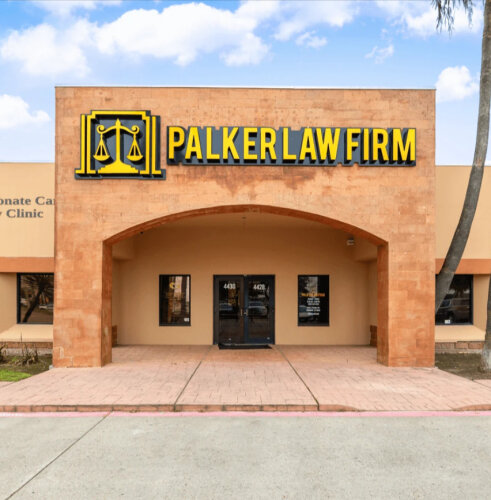Best Workers Compensation Lawyers in Edinburg
Share your needs with us, get contacted by law firms.
Free. Takes 2 min.
List of the best lawyers in Edinburg, United States
About Workers Compensation Law in Edinburg, United States
Workers compensation in Edinburg, Texas is part of the Texas workers compensation system administered by the Texas Department of Insurance - Division of Workers' Compensation. Texas operates a largely voluntary system - most private employers are not required by state law to carry workers compensation insurance, but many do. Employers who subscribe to the system agree to provide certain benefits to injured employees such as medical care and income benefits for work-related injuries or illnesses. Employers who do not subscribe may be exposed to lawsuits from injured workers under ordinary negligence law.
The system in Texas focuses on prompt medical care, temporary and long-term income benefits when wages are lost, and benefits tied to an impairment rating and maximum medical improvement. Administrative procedures and dispute resolution are governed by state rules and are handled through the Division of Workers' Compensation or, in some cases, state courts if the employer is a non-subscriber.
Why You May Need a Lawyer
Many workplace injury cases resolve without legal intervention, but there are common situations in which it helps to have a lawyer experienced in Texas workers compensation and local practice in the Rio Grande Valley area. A lawyer can help when:
- Your claim is denied or delayed by the insurance carrier.
- The insurance company disputes that the injury or illness is work-related.
- You have a serious or permanent impairment and the carrier is offering a low settlement.
- You have complex medical issues such as repetitive trauma, occupational disease, or delayed symptoms.
- Your employer is a non-subscriber and you need to pursue a negligence lawsuit instead of administrative benefits.
- You face employer retaliation, wrongful termination, or harassment after filing a claim.
- You need help understanding medical records, impairment ratings, maximum medical improvement, and how those affect benefits.
- You are approaching a statutory deadline or the insurer is pushing a quick settlement without full information.
Local Laws Overview
Key aspects of the Texas workers compensation system that are particularly relevant in Edinburg include:
- Voluntary system - Most private employers in Texas can choose whether to subscribe to the workers compensation system. Employers that subscribe are generally protected from most negligence lawsuits by employees. Non-subscribing employers may be sued in court.
- Administration - The Texas Department of Insurance - Division of Workers' Compensation oversees claims, medical fee schedules, and dispute resolution. Injured workers who have a dispute with the carrier often use the DWC administrative process.
- Reporting and notice - Employees should report work-related injuries or illnesses to their employer as soon as possible. Employers have responsibilities to report certain injuries to the division and to their insurance carrier within short timeframes once they know of the injury.
- Medical care - For covered claims the employer or carrier is responsible for providing reasonable and necessary medical treatment related to the work injury. Choice of treating doctor, use of certified networks, and preauthorization rules can affect where and how care is delivered.
- Income and impairment benefits - If a work injury causes lost wages, you may be eligible for temporary income benefits while you recover, and impairment benefits if you have lasting impairment after reaching maximum medical improvement. Benefit amounts and durations are determined by state rules, the nature of the injury, and your pre-injury earnings.
- Dispute resolution - The division provides processes for contested cases including benefit disputes, medical disputes, and hearings. If an employer is a non-subscriber, disputes are handled through civil litigation in state court rather than the DWC administrative process.
- Deadlines and time limits - There are statutory and administrative deadlines that affect reporting, filing for benefits, requesting hearings, and appealing decisions. Meeting these deadlines is important to preserve your rights.
Frequently Asked Questions
What should I do immediately after a workplace injury?
Seek medical attention for any injury that requires treatment. Notify your supervisor or employer as soon as possible in writing when you are able. Keep copies of medical records, incident reports, communications with your employer and the insurer, and any witness information.
Do I have to use my regular health insurance first?
If your employer subscribes to workers compensation, medical treatment for a covered work-related injury should generally be paid by the workers compensation system. In practice, clarify with your employer or the carrier about where to receive care and whether a network applies. If the employer does not subscribe, use your personal health insurance and discuss responsibility for medical bills with an attorney.
How long do I have to report the injury to my employer?
You should report the injury to your employer as soon as possible. While timing rules can vary by situation, prompt notice preserves your rights and helps prevent disputes. Put your notice in writing and keep a copy. If you are unsure, contact a local workers compensation attorney or the Division of Workers' Compensation for guidance.
Will I get paid while I am out of work?
If your claim is covered and you have a lost-time injury, you may be eligible for income benefits while you are temporarily unable to work. The amount and duration depend on the nature of your injury, your pre-injury earnings, and state guidelines. A lawyer can help evaluate whether the benefits being offered are correct under the law.
What if the insurance company denies my claim?
If a claim is denied, you can request a benefit review conference or contested case hearing through the Division of Workers' Compensation if your employer is a subscriber. If your employer is a non-subscriber, you may pursue a civil lawsuit. An attorney experienced in Texas workers compensation can advise on next steps, deadlines, and representation at hearings or in court.
Can I sue my employer for negligence?
Generally, if your employer subscribes to the workers compensation system, workers compensation is the exclusive remedy against your employer for workplace injuries, and you cannot sue for negligence. However, if your employer is a non-subscriber, you may have the right to file a negligence lawsuit in state court. In some limited cases, third parties who are not your employer may be sued even if your employer subscribes to workers compensation.
What is maximum medical improvement and why does it matter?
Maximum medical improvement, or MMI, is the point at which your treating doctor believes your condition has stabilized and is unlikely to improve substantially. MMI is important because it often triggers an impairment evaluation, which can determine the amount of permanent impairment benefits you may receive.
Should I sign a settlement offer from the insurance company?
Before signing any settlement offer consult a workers compensation attorney. Settlements can resolve current and future claims, and you need to understand how a settlement will affect future medical care, impairment benefits, and other rights. A lawyer can evaluate whether the offer is fair and negotiate on your behalf.
What if I was injured by a third party at work?
If someone other than your employer or a coworker caused your injury - for example a motorist in a vehicle crash or a contractor at the worksite - you may have a third-party claim in addition to workers compensation benefits. A third-party claim can seek full compensation for pain and suffering, lost wages, and other damages that are not available through workers compensation alone.
How do I find a workers compensation lawyer in Edinburg?
Look for attorneys who handle Texas workers compensation matters and who have experience with local administrative procedures and courts in the Rio Grande Valley. Many firms offer an initial consultation - ask about experience, fees, typical case outcomes, and how the attorney communicates with clients. Free or low-cost legal help may be available through local legal aid organizations for qualifying individuals.
Additional Resources
Below are types of organizations and agencies that can help you learn more about workers compensation and get assistance:
- Texas Department of Insurance - Division of Workers' Compensation - the state regulator and administrator of the workers compensation system in Texas.
- OSHA - United States Department of Labor - for workplace safety concerns and federal workplace safety standards.
- Local legal aid organizations - such as those that serve South Texas and the Rio Grande Valley for low-cost or pro bono legal help.
- Local county courts and clerk offices - for information if you must pursue litigation against a non-subscribing employer or a third party.
- Professional associations of workers compensation attorneys - to locate an experienced lawyer in the Edinburg area.
Next Steps
If you or a loved one has a work-related injury in Edinburg, consider these practical next steps:
- Seek medical care immediately and follow your provider's instructions.
- Notify your employer in writing as soon as reasonably possible and request confirmation that the report was received.
- Keep detailed records - medical bills, visit notes, time missed from work, pay stubs, incident reports and any communications with your employer or the insurance carrier.
- Check whether your employer subscribes to workers compensation and whether a certified health care network applies.
- If your claim is denied, delayed, or you have questions about settlement offers or ongoing medical care, consult a workers compensation attorney who knows Texas law and local practice. Many attorneys provide an initial consultation and explain your options and any applicable deadlines.
- If you believe your employer retaliated against you for filing a claim, document the actions and contact an attorney promptly to protect your rights.
Workers compensation matters involve important deadlines and technical procedures. Acting early, preserving evidence, and getting informed legal advice will help protect your health, income, and legal rights.
Lawzana helps you find the best lawyers and law firms in Edinburg through a curated and pre-screened list of qualified legal professionals. Our platform offers rankings and detailed profiles of attorneys and law firms, allowing you to compare based on practice areas, including Workers Compensation, experience, and client feedback.
Each profile includes a description of the firm's areas of practice, client reviews, team members and partners, year of establishment, spoken languages, office locations, contact information, social media presence, and any published articles or resources. Most firms on our platform speak English and are experienced in both local and international legal matters.
Get a quote from top-rated law firms in Edinburg, United States — quickly, securely, and without unnecessary hassle.
Disclaimer:
The information provided on this page is for general informational purposes only and does not constitute legal advice. While we strive to ensure the accuracy and relevance of the content, legal information may change over time, and interpretations of the law can vary. You should always consult with a qualified legal professional for advice specific to your situation.
We disclaim all liability for actions taken or not taken based on the content of this page. If you believe any information is incorrect or outdated, please contact us, and we will review and update it where appropriate.










